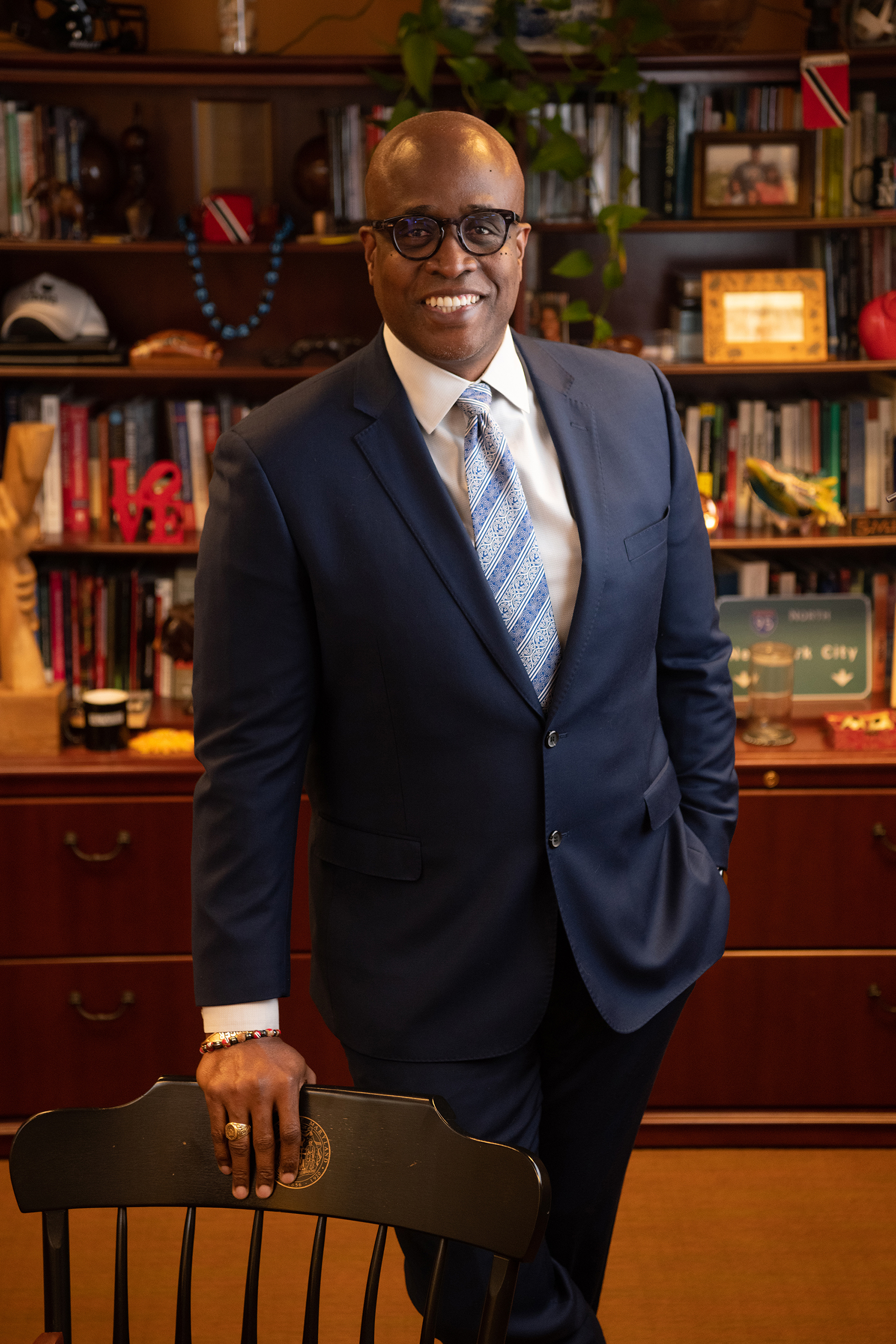UMB’s Roger Ward Honored with Leaders in Diversity Award
May 22, 2024 UMB Staff
“Baltimore Business Journal” recognizes provost and executive vice president for his efforts to support equity, diversity, and inclusion.
Roger J. Ward, EdD, JD, MSL, MPA, provost and executive vice president of the University of Maryland, Baltimore (UMB), was selected as one of the 10 honorees for the Baltimore Business Journal’s 2024 Leaders in Diversity Awards.
The award winners from the Greater Baltimore area are being honored for their efforts to promote equity, diversity, and inclusion (EDI) in workplaces and the community. The honorees will be recognized June 13 at the Leaders in Diversity Awards breakfast at the Merriweather Lakehouse in Columbia.
The Baltimore Business Journal described its 2024 honorees as an “eclectic group” that “spans a host of industries and diversity goals. … What they all have in common is a plan to ensure that more people get the chance to partake in their organization’s success — and that the people they serve reflect the community as a whole.”
“I am deeply honored to be a recipient of the 2024 Baltimore Business Journal Leaders in Diversity Award,” Ward said. “This recognition reflects UMB’s commitment to enriching the learning experience through diversity and creating a vibrant and inclusive culture for all members of our community.”
“Dr. Ward has been a true champion for diversity at UMB, working to create a more inclusive and equitable university since arriving on campus in 2009,” said UMB President Bruce E. Jarrell, MD, FACS. “His many efforts have contributed to an environment where diverse perspectives are valued and celebrated. He is extremely deserving of this award, and I am proud to count him as a colleague and a friend.”
Among his efforts, Ward worked with former UMB President Jay A. Perman, MD, to establish the Diversity Advisory Council in 2010 as an advisory body dedicated to promoting diversity initiatives across the institution. After Jarrell succeeded Perman in 2020, Ward helped with the establishment, resourcing, and recruitment of UMB’s inaugural chief EDI officer in 2021 and the establishment of the Office of EDI.
“I’m motivated by the belief that everyone, regardless of the attributes that distinguish us from each other, should have access to opportunities,” Ward said. “Diversity strengthens us as a society and makes our institutions more capable and successful. Research has shown that diversity improves problem-solving, decision-making, and enriches everyone.”
Ward’s work also has led to the inclusion of EDI within the University’s strategic planning. Beginning in 2011, UMB’s Strategic Plan included diversity as a theme with specific outlined goals to help promote diversity and a culture of inclusion. Among those, EDI criteria were placed in leaders’ performance evaluations and initiatives were created to promote diversity and inclusion as core values. The subsequent Strategic Plan built on the work and included a theme on inclusive excellence.
As a staunch advocate for women’s leadership in higher education, Ward has been a steadfast supporter of advancement, serving as a mentor and sponsor to numerous leaders at UMB. His mentorship extends beyond mere guidance; he actively promotes and sponsors their leadership and promotions. In addition, under the Office of the Provost, he actively supports and promotes the recruitment and retention of underrepresented faculty at UMB’s seven schools.
When he was dean of the University of Maryland Graduate School, Ward supported new programs such as the Intercultural Leadership Certificate Program and the Master of Science in Diversity, Equity, and Inclusion Leadership. This innovative program — the first of its kind in Maryland and one of about 10 programs in the country — provides students with the skills needed to lead the charge toward a more equitable and inclusive future by developing strategies to address issues related to diversity in their workplaces and organizations.
“Educational institutions play a key role in preparing future leaders to engage in our interconnected world,” Ward said. “Inclusive environments enrich the educational experience, promote a sense of belonging, and prepare students to enter the future workforce with cultural humility.”
Ward’s dedication to advancing EDI education shows up in the classroom, too. He has taught graduate courses in ethics, the history of higher education, leadership and organizational behavior, legal issues in higher education policy, and cybersecurity policy, among others.